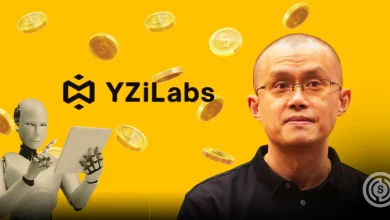Vietnam Launches $100B Crypto Market Regulation Program

- Vietnam introduces a five-year pilot to regulate $100B in annual crypto trading volumes.
- NDAChain, a government-backed blockchain, will support digital assets, payments, and tokenized real-world assets.
- Only domestic firms can operate platforms, with all trading and settlements required in Vietnamese dong.
Vietnam has long been one of the most active countries in the world when it comes to cryptocurrency trading, but until now, the vast majority of activity has taken place outside of the government’s watch. With millions of Vietnamese flocking to global platforms like Binance and Bybit, trading volumes have reached over $100 billion annually, without any formal oversight or taxation.
This is changing quickly. The government has launched a new five-year pilot program designed to bring the booming sector under official regulation, strengthen protections for investors, and integrate digital assets into the broader financial system.
Meanwhile, the program is seen as a strategic move for the country, which boasts a teeming population of young minds that are knowledgeable about the digital space and eager to partake in new financial innovations. By shifting trading activity from offshore platforms to licensed domestic providers, officials aim to capture tax revenues, improve oversight, and build a more sustainable environment for both retail and institutional investors.
Vietnam is Building a Regulatory Framework That Connects Crypto to the Domestic Financial System
Resolution 05, the backbone of the pilot program, introduces a structured regulatory framework that sets the stage for crypto trading within Vietnam’s financial boundaries. Under this plan, only Vietnamese firms will be permitted to operate platforms, and issuance and settlement must take place in Vietnamese dong. This strategy is aimed at ensuring that capital flow is smooth and transparent while mitigating risks associated with unsupervised foreign exchanges.
A turning point came earlier this year when the National Assembly passed the Law on Digital Technology Industry, which for the first time formally recognized digital assets. The law requires exchanges to secure domestic licenses while also complying with strict anti-money laundering and counter-terrorism financing standards. Beginning January 2026, exchanges will be required to provide direct transaction gateways in dong, cementing the government’s control over the fast-growing sector.
Alongside these regulatory measures, the launch of NDAChain—the country’s national blockchain platform—marks a bold effort to merge financial innovation with secure technology. NDAChain will not only process financial transactions but also allow digital tokens to be backed by tangible assets such as invoices, bonds, and even carbon credits.
Vietnam’s Pilot Program Could Become a Major Driver of Its Digital Economy in the Years Ahead
With NDAChain enabling tokenization of assets ranging from corporate bonds to commercial invoices, Vietnam is positioning itself as a leader in financial innovation within Southeast Asia. Government officials argue that the country can integrate international and domestic banking and payment systems, thus building a less cash-oriented economy and reaping the benefits of an emerging industry that remains shrouded in secrecy.
This, in turn, aligns with the surprisingly strong recovery of the global crypto market, with Bitcoin now trading above $112,000 and Ethereum above $4,200, instilling confidence in the crypto market. With the intended reforms, along with the revival in the crypto market, it can be deduced that the international demand and domestic policy reforms of Vietnam will shape the future of crypto in the country.
Vietnam, by constructing an organized system, proactively moves to embrace cryptocurrency, signaling it’s not a mere concept but an important component of the financial system. In the future, it will strengthen and support millions in Vietnam, helping them to trade and interact with digital currencies. The pilot program will not resolve every issue but rather serve as the fundamental building block to reshape the approach.



